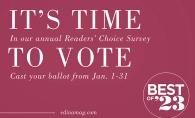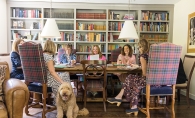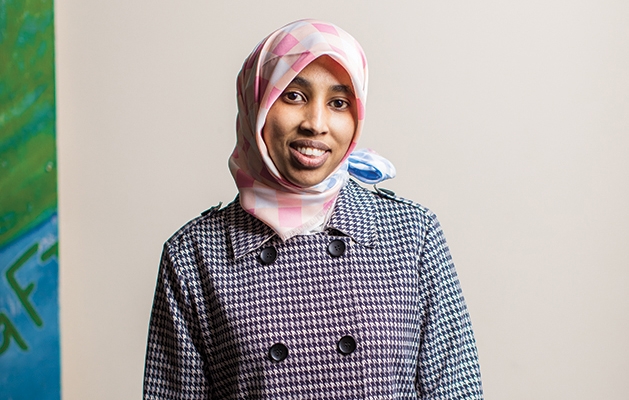
Fartun Ismail has lived in Edina for seven years and is the founder of the Somali American Women Action Center (SAWAC). She was raised by a single mother. Her grandmother was the bread winner in the family’s homeland of Somalia and taught Ismail the importance of women’s independence. This, and other shared values, have encouraged Ismail to connect with other community members in Edina to share perspectives through ongoing informal conversations in a group called Iskaashi Talks.
“Iskaashi means collaboration,” says Ukasha Dakane, a member of Edina’s east African community and founder of Fortune Relief and Youth Empowerment Organization (FRAYEO). Dakane has participated on Edina’s energy and environment commission and recently ran for public office. It was while serving on the energy and environment commission that Dakane met Michelle Horan and Melissa Seely of Edina. Horan and Seely have known each other for many years. They are passionate about sustainability and helped launch the organics recycling program in Edina Public Schools. It was a conversation at the commission about intersectional topics related to sustainability and social justice that prompted Dakane, Horan and Seely to launch Iskaashi Talks, a gathering for anyone interested in the environment and community building.
The group’s first meeting was last August at Centennial Lakes Park. Dakane invited Ismail and other Somali women from Ismail’s SAWAC sewing group. “My grandmother was a great sewer,” Ismail says. “She used to sew tote bags and sell them to feed her family. She taught other women to do this. I saw her do it and when I moved here, I came up with the idea to challenge people to not use plastic bags in our homes.” Since 2018 volunteers with SAWAC have been teaching local women, who were once refugees, how to become economically independent while also acting on climate issues. In Somalia, “we’ve seen livestock animals eating [discarded] plastic bags and that is not good,” says Ismail who wants others to know that educating people about sustainability issues truly is a global concern.
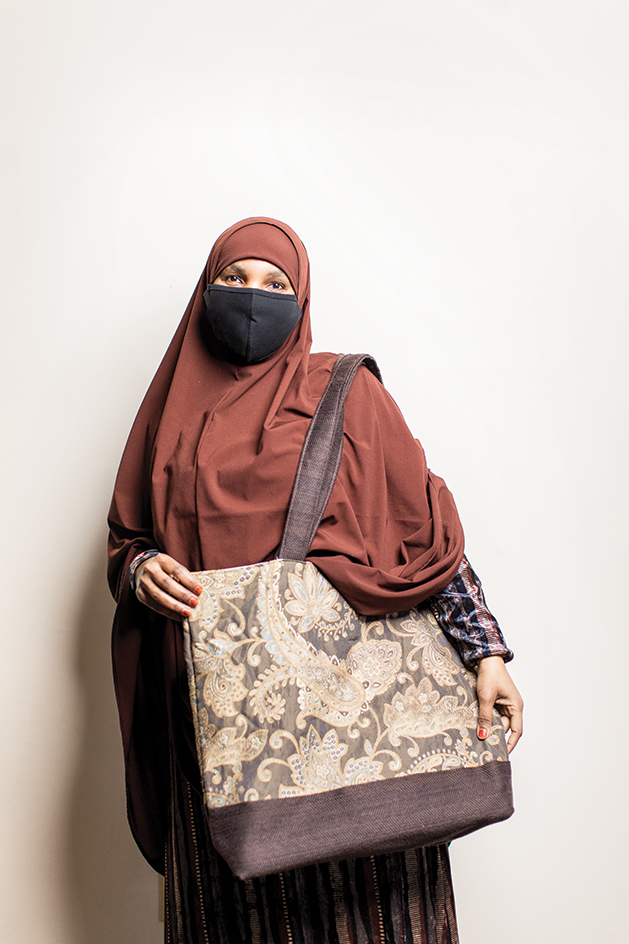
Dakane points out that environmental injustices tend to disproportionally affect vulnerable communities. During an Iskaashi Talks conversation Horan and Seely heard personal stories of refugees who’ve lost their homes and who see the possibility of others losing their homes due to environmental calamities. Horan says, “[SAWAC] decided to tackle the idea by making reusable bags and selling them. It’s amazing.” (Prior to the pandemic, the SAWAC tote bags were available for sale at the Minnesota Institute of Arts, Minnesota History Center and at pop-up shops outside Jerry’s Foods. The group has also provided income for women out of work due to the pandemic by having them sew over 5,000 face masks from home.)
Dakane says, “I liked the tote bags and [the sewers] motivated me in so many ways … these women can tell of their personal experiences … I envision creating space where every person who comes to Edina realizes that their vision and values matter and that people are listening.”
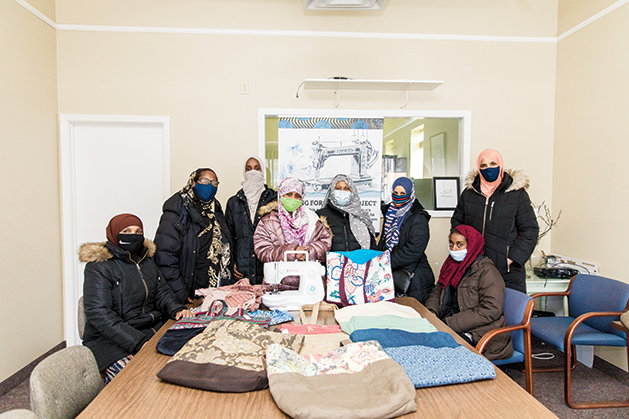
Somali America Women Action Center (SAWAC)
This group accepts financial and fabric donations, and as of this writing, was in search of donated space for storing sewing supplies and equipment.
People are listening. People like Horan, Seely and others who want to get to know the perspectives of local residents who don’t necessarily look like them or share similar life experiences but do share similar values. A group like Iskaashi Talks is a great way to overcome barriers and to connect. During the pandemic, Iskaashi Talks moved online. A follow-up to the Centennial Lakes meeting included a screening of a film about plastic bags followed by a Zoom discussion. Seely says, “The goal is just to bring a diverse group of voices together to chat about environmentalism and sustainability, topics that don’t belong to any one people group.”








